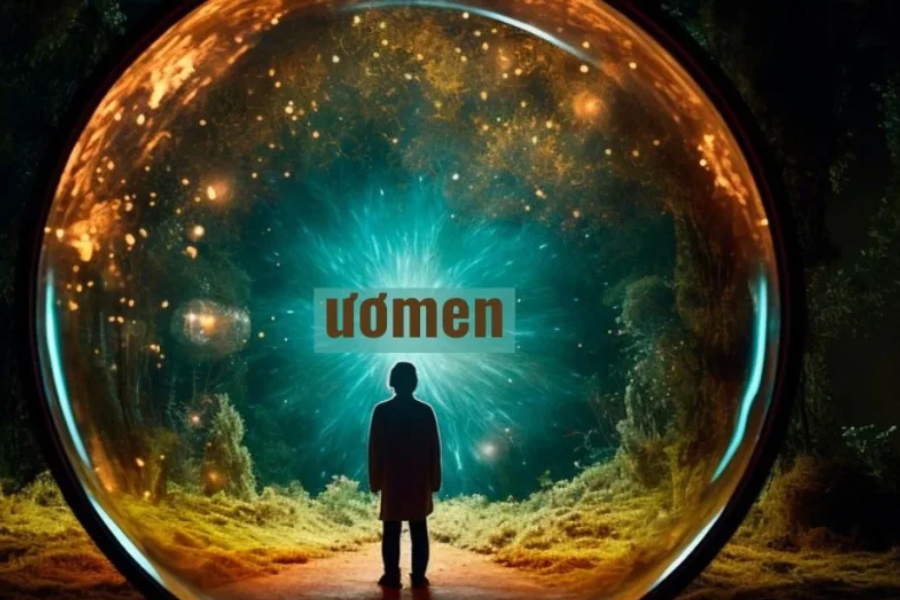In our ever-evolving global conversation about gender equality and inclusivity, a new term, “ươmen,” has emerged. This concept represents a powerful blend of unity and strength, transcending traditional gender binaries by encompassing a broad spectrum of human virtues. “Ưomen” honors qualities traditionally associated with femininity, such as empathy, resilience, and nurturing, while advocating for their universal application. This article delves into the origins, significance, and contemporary relevance of ươmen, highlighting its potential to transform our understanding of gender and human potential.
The Origins Of Ươmen
Philosophical Foundations
The concept of ươmen is deeply rooted in ancient philosophies and Eastern traditions that highlight the balance between masculine and feminine energies. The term combines the Eastern character “ư,” which represents essence or spirit, with “omen,” a word associated with womanhood or femininity. This blend advocates for a holistic perspective on human virtues, transcending traditional gender roles and symbolizing inclusivity and equality.
Etymological Insights
In many Eastern philosophies, “ư” signifies the core spirit or essence of a person, emphasizing qualities that go beyond physical traits. When combined with “omen,” which denotes femininity, ươmen celebrates virtues like empathy, compassion, and resilience. Traditionally seen as feminine, these traits are essential for everyone, promoting a move beyond gender stereotypes towards a more inclusive understanding of human nature.
Historical and Cultural Evolution
Historical Development
Over the centuries, the concept of ươmen has evolved significantly, mirroring changes in societal norms and cultural practices. Historically associated with goddesses and divine feminine figures celebrated for their wisdom, nurturing, and strength, these qualities were often entangled with restrictive social expectations and gender roles. Today, the modern interpretation of ươmen aims to reclaim these virtues, emphasizing their importance and applicability beyond traditional gender boundaries.
Cultural Interpretations
Cultural interpretations of ươmen differ, reflecting a variety of values and experiences. In Eastern traditions, the harmony between yin and yang symbolizes the balance of masculine and feminine energies, aligning with the essence of ươmen. In Western contexts, ươmen resonates with feminist principles of equality and inclusivity, challenging traditional gender roles and promoting a holistic understanding of human potential.
Contemporary Relevance
Modern Applications
In today’s society, the concept of ươmen is particularly relevant as we strive for greater gender equality and inclusivity. It reflects current efforts to dismantle gender barriers and acknowledge the unique contributions individuals make, regardless of their gender. By embracing the principles of ươmen, we can create environments that prioritize empathy, resilience, and creativity, leading to a more inclusive and equitable world.
Core Virtues of Ươmen
Empathy and Compassion
Empathy and compassion lie at the heart of ươmen, embodying our ability to empathize and share in the experiences of others. These qualities form the bedrock of meaningful connections, fostering a sense of belonging and understanding within communities. By embracing empathy and compassion, we cultivate inclusive environments where everyone’s perspectives are valued and respected, nurturing a culture of empathy that extends beyond individual interactions to shape the fabric of society.
Resilience and Strength
Resilience serves as another essential pillar of ươmen, symbolizing the capacity to withstand and rise above adversity and challenges. It’s a strength rooted not in physical power but in mental and emotional fortitude, empowering individuals to navigate life’s obstacles with grace and determination. This resilience isn’t just about bouncing back; it’s about learning and growing stronger from the experiences we encounter. It’s about embracing setbacks as opportunities for personal development and transformation, ultimately shaping us into more resilient and empowered individuals capable of overcoming life’s trials with resilience and grace.
Creativity and Intuition
Creativity and intuition play crucial roles in ươmen, highlighting the importance of innovative thinking and deep self-awareness. These qualities foster a holistic approach to problem-solving, enabling individuals to devise unique and effective solutions that address complex challenges. Creativity encourages us to think outside the box, to explore new perspectives and possibilities, while intuition guides us in tapping into our inner wisdom and making insightful decisions. Together, creativity and intuition empower us to embrace uncertainty and navigate ambiguity with confidence, unleashing our full potential to shape a brighter and more inclusive future.
Authentic Leadership
‘Leadership under ươmen emphasizes authenticity and fostering inclusive environments. It prioritizes collaboration, empathy, and empowering others, departing from traditional hierarchical models. Leaders lead by example, showing integrity and concern for their team’s well-being. This style fosters trust and belonging, inspiring individuals to contribute fully. By embracing this leadership, we create environments where everyone thrives.’
Exploring Ươmen Further
Literary and Artistic Representations
Literature and art provide us with diverse portrayals of ươmen, featuring characters who embody its essence. From the sagacious Athena in Greek mythology to the resilient and compassionate heroes of contemporary narratives, these depictions showcase the timeless relevance of ươmen across various cultures and epochs. These characters serve as inspiring examples, demonstrating the strength, wisdom, and empathy that define ươmen. Their stories resonate with audiences, offering profound insights into the human experience and serving as reminders of the enduring power of these virtues throughout history. Whether in ancient myths or modern tales, the spirit of ươmen continues to inspire and uplift, transcending time and cultural boundaries.
Gender and Inclusivity
Although ươmen finds its origins in traditional feminine attributes, it inherently encompasses individuals of all genders. The virtues it represents—empathy, resilience, creativity, and leadership—are universal qualities that play vital roles in fostering a more harmonious and equitable society. These traits transcend gender-specific labels, serving as pillars that uphold inclusivity and equality. By recognizing and valuing these virtues in all individuals, irrespective of gender, we can build a society that embraces diversity and celebrates the unique contributions of every person. This inclusive approach not only enriches our communities but also paves the way for a future where gender no longer dictates societal roles or expectations.
Addressing Criticisms
While ươmen has positive qualities, it’s not immune to criticism. Some worry it could reinforce stereotypes or oversimplify gender dynamics. It’s vital to consider these critiques thoughtfully, recognizing the complexities involved. By doing so, we can ensure ươmen expands our understanding of human potential. This means engaging in open dialogue, embracing diverse perspectives, and challenging assumptions to foster an inclusive discourse on gender and identity. Through this, we can harness ươmen’s strengths while striving for a more equitable future.
Empowering Change Through Ươmen
Enhancing Self-Worth and Agency
The principles of ươmen serve as a source of empowerment for individuals, nurturing their sense of self-worth and agency. By recognizing and honoring their distinctive strengths and virtues, people are equipped to navigate life’s challenges with increased confidence and clarity of purpose. This empowerment encourages individuals to embrace their inherent value and potential, enabling them to make meaningful choices and pursue their aspirations with determination and resilience. As a result, they can cultivate fulfilling and purpose-driven lives, contributing positively to their communities and the world at large.
The Role of Education
Education plays a vital role in nurturing an understanding and appreciation of ươmen. By incorporating these principles into educational programs and encouraging conversations about gender equality and inclusivity, we can shape a more empathetic and knowledgeable generation of leaders. This approach not only equips students with the tools to recognize and challenge gender stereotypes but also fosters a deep sense of respect for diversity and inclusion. By instilling these values early on, education empowers individuals to become advocates for positive change, paving the way for a more equitable and compassionate society.
Building an Inclusive Society
Collective Effort for Inclusivity
Building a more ươmen society necessitates united efforts to break down barriers and foster inclusivity. This entails confronting stereotypes head-on, advocating for equal access to opportunities, and amplifying the voices of marginalized communities to ensure that everyone is represented and heard. It requires collective action from individuals, communities, and institutions to create environments where diversity is celebrated, and everyone is valued for their unique contributions. By working together towards this common goal, we can build a society that embraces and uplifts all its members, regardless of gender or background.
Embracing Intersectionality
Intersectionality plays a crucial role within the framework of ươmen, acknowledging the multifaceted experiences of individuals across various dimensions such as race, class, sexuality, and ability. By embracing an intersectional perspective, we recognize that people’s identities are shaped by a combination of these factors, and that their experiences of discrimination and privilege can vary accordingly. This approach allows us to address the unique challenges faced by different communities, ensuring that our efforts towards creating a more inclusive and equitable society are comprehensive and intersectional. It encourages us to listen to and uplift marginalized voices, to prioritize the needs of those most affected by systemic inequalities, and to work collaboratively towards solutions that benefit all members of society. Through intersectionality, we can strive for a world where every individual is valued and empowered to thrive, regardless of their intersecting identities.
Conclusion
The concept of ươmen offers a profound understanding of human nature, highlighting qualities like empathy, resilience, creativity, and authentic leadership. Embracing these principles can steer us towards a future marked by compassion, harmony, and sustainability, promoting gender equality and inclusivity for everyone. As we navigate the complexities of modern life, the essence of ươmen serves as a guiding light, inspiring us to construct a society that respects and celebrates the unique strengths of each individual.

